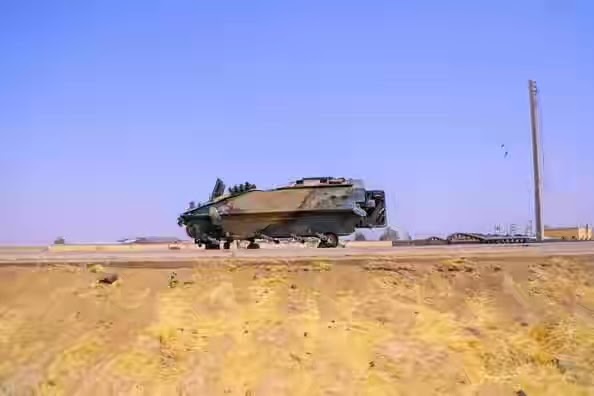ISWAP Remains Disruptive Despite Nigerian Military Offensive
Frequent clashes between the military and ISWAP terrorists in Northern and Central Borno, Northeast Nigeria, threaten humanitarian assistance in the region.

A series of daring raids by Islamic State West Africa Province (ISWAP) has led to further displacements, disruption of humanitarian activities and security concerns in Northern and Central Borno, Northeast Nigeria.
In the past few weeks, ISWAP, a splinter group of Boko Haram, has carried out audacious attacks targeting strategic towns and military formations.
Nganzai, Ngala, Kaga, Marte, Monguno, Dikwa are some of the locations where troops have recently clashed with ISWAP insurgents.
Abadam, Kukawa, Guzamala and Marte are mostly considered high-risk areas due to ISWAP activities.
The multi-pronged incursion and fierce battles in Dikwa, late on March 1 and March 2 led to the destruction of facilities, displacement and a siege on the United Nations (UN) humanitarian hub which forced aid workers to seek shelter in a bunker.
An unknown number of aid workers outside the compound were abducted. HumAngle understands the attacks in Feb and March resulted in a drastic reduction in humanitarian footprint.
In February, Dikwa received more than 3,000 displaced people after ISWAP took control of neighbouring Marte.
On March 5, the State Governor, Babagana Zulum visited the town to assess the impact of the attack on the garrison town which included the Army super camp and a primary healthcare centre.
The Nigerian International Non-Governmental Organisation (INGO) Forum, in a statement issued on March 3, said that the attacks would cut-off a very vulnerable population from the much needed life-saving support provided by aid workers.
In a leaked memo, 12 senior officers and 89 soldiers were designated as deserters for absconding from their positions in Marte and Dikwa.
The fluid and volatile security situation in Northern and Central Borno has raised concerns over the safety of humanitarian hubs and aid workers in garrison towns, as well as humanitarian access to key supply routes.
HumAngle has observed that the recent attacks point to the vulnerability of the super camp strategy, and garrison towns where a lot of people, some of whom have experienced multiple displacements, receive critical humanitarian assistance and support.
The super camps were established a few years ago to concentrate troops in large bases in garrison towns to curb growing attrition caused by raids on bases along the fringes of Lake Chad and Northern Borno.
The insurgency which has been ongoing for over a decade, has led to over 30,000 deaths and displacement of over two million people.
Support Our Journalism
There are millions of ordinary people affected by conflict in Africa whose stories are missing in the mainstream media. HumAngle is determined to tell those challenging and under-reported stories, hoping that the people impacted by these conflicts will find the safety and security they deserve.
To ensure that we continue to provide public service coverage, we have a small favour to ask you. We want you to be part of our journalistic endeavour by contributing a token to us.
Your donation will further promote a robust, free, and independent media.
Donate HereStay Closer To The Stories That Matter




